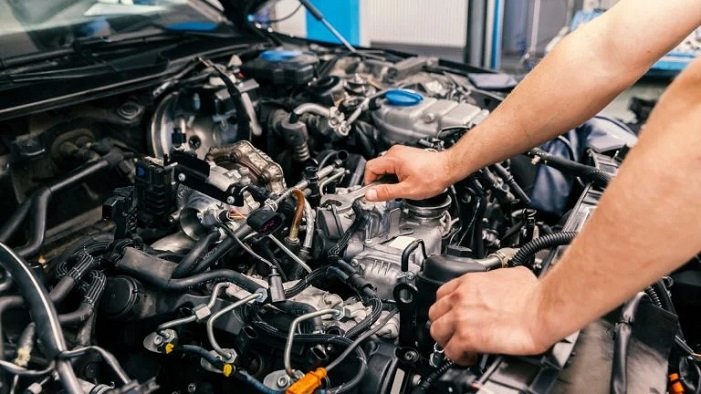Have you ever noticed that your car shakes when it’s idling but runs smoothly as soon as you hit the road? This can be a puzzling experience, leaving many drivers wondering what might be wrong. Understanding the causes of this phenomenon can help you address potential issues before they escalate into more serious problems. In this blog post, we will dive into the common reasons behind a shaky idle and provide actionable solutions to keep your vehicle running smoothly.
Key Causes of Shaking at Idle
1. Idle Air Control Valve (IACV) Malfunction
The IACV is responsible for maintaining a stable idle speed by regulating airflow into the engine. If it becomes clogged or fails, you may experience rough idling and shaking. Symptoms can include erratic idle speeds or stalling when the engine is cold
2. Fuel System Blockages
Fuel injectors can become clogged over time, leading to insufficient fuel delivery at idle. This can result in vibrations and rough idling. A clogged fuel filter can contribute to this issue, making regular maintenance crucial for optimal performance
3. Ignition System Failures
Faulty spark plugs or ignition coils can lead to misfires, causing your engine to shake at idle. Regular inspection and replacement of these components are essential for a smooth-running engine
4. Engine Mount Issues
Engine mounts secure the engine to the vehicle’s frame and absorb vibrations. When these mounts wear out or break, the vibrations can be more noticeable at idle. If you feel excessive shaking, it might be time to inspect and replace the mounts
5. Mass Airflow Sensor (MAF) Issues
The MAF sensor measures the amount of air entering the engine and plays a key role in maintaining the correct air-fuel mixture. If the MAF is dirty or malfunctioning, it can cause rough idling
6. Transmission Problems
Shaking can also stem from transmission issues, particularly with the torque converter. If you notice shaking that seems to coincide with shifts in the transmission, this may be the culprit
How to Diagnose Shaking at Idle
To diagnose why your car shakes at idle, consider the following steps:
- Check Dashboard Lights: Pay attention to any warning lights on your dashboard. A check engine light could indicate a variety of issues, from sensor problems to engine misfires.
- Listen and Feel: Pay attention to any unusual sounds or vibrations when your car is idling. This can help narrow down the source of the problem.
- Inspect Components: Look at the IACV, fuel injectors, and ignition system components. If any appear worn or damaged, they may need replacement
- Idle Speed Monitoring: Note any irregularities in your idle speed. Fluctuations could point to problems with the IACV or fuel delivery
When to Visit a Mechanic
If you’ve gone through these diagnostic steps and the shaking persists, it’s essential to visit a professional mechanic. They can perform a more thorough inspection and diagnostic testing to identify the underlying issues accurately. Ignoring a shaking engine can lead to further damage, costing you more in the long run
Conclusion
Experiencing shaking at idle can be unsettling, but understanding the potential causes can empower you to take action. From faulty idle air control valves to ignition system failures and engine mount issues, there are various factors at play. Regular maintenance and timely inspections are key to preventing these problems.
If your car is shaking at idle, don’t hesitate to consult with a mechanic to keep your vehicle in optimal condition. Staying proactive will help ensure a smoother, safer driving experience.

